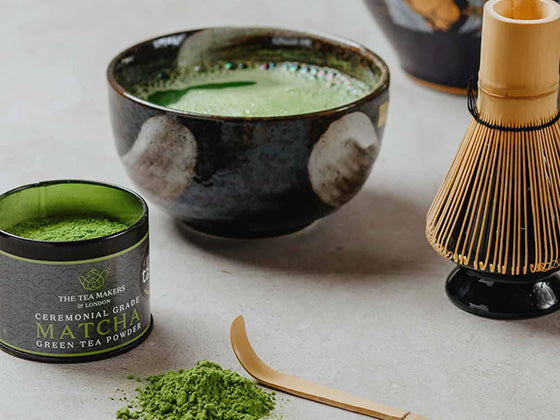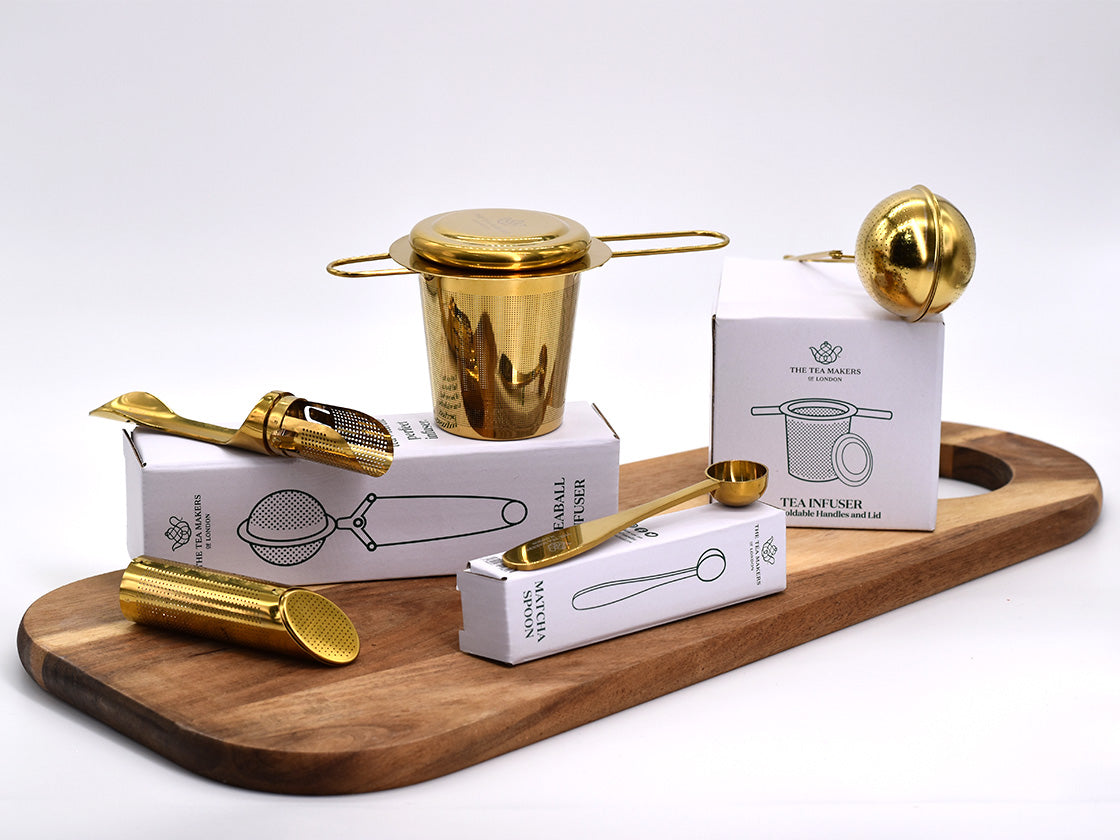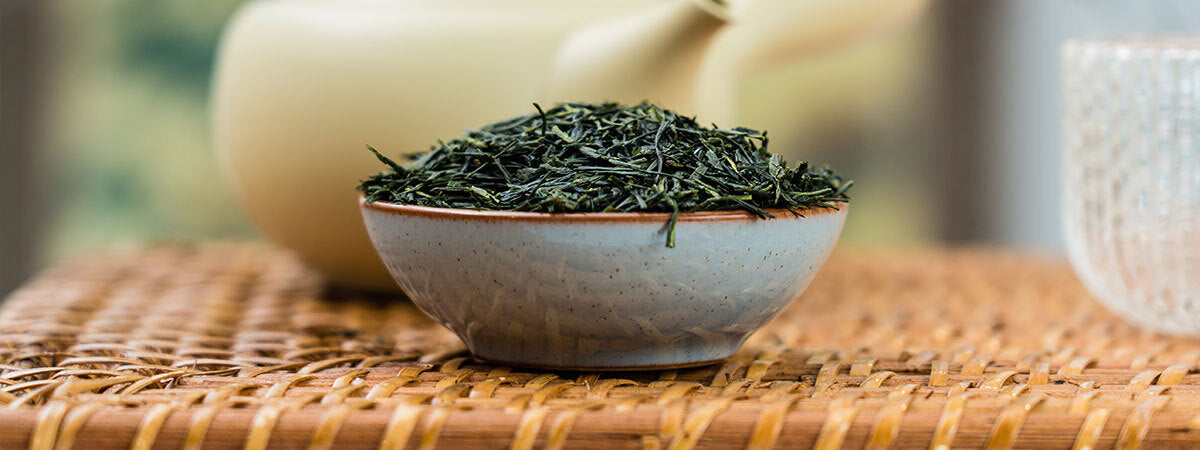Peppermint tea is a refreshing, herbal hot drink. Made by infusing peppermint leaves in hot water, this uplifting beverage is as delicious as it is good for you.
When you steep peppermint leaves, they release lots of essential oils. These oils, including menthol, menthone and limonene, contribute to the many health benefits offered by peppermint tea.
Read on to find out more and discover five ways peppermint tea can help your health.
What does Peppermint Tea Taste Like?
Imagine the taste of mint in smooth, soothing liquid form and you’ve got the taste of peppermint tea. With a light yellow infusion, this brew is the epitome of a refreshing, thirst-quenching drink.
Peppermint tea is sourced and produced all over the world, with different blends offering slightly different flavour profiles. We sourced our single-origin peppermint leaves from America, marrying intense flavour with a hint of sweetness.

Does Peppermint Tea have Caffeine?
Like with many other herbal teas, there is absolutely no caffeine in herbal peppermint tea. Because of this, it’s a great option for night time sipping. Its medicinal qualities (more on that later) make it the perfect after-dinner drink, and the refreshing taste can give you a bit of pep in the morning, too.
The other good news is you can drink as much as you like — drinking too much peppermint tea won’t give you the jitters or any other nasty side effects (like coffee could, for example).
If you’re looking for a caffeine-free peppermint tea, make sure you choose a completely herbal blend like this one. Minty green tea is another popular infusion that combines green tea with fresh flavours of peppermint but because it contains green tea, this drink is caffeinated.
How Much Peppermint Tea Should You Drink a Day?
As peppermint tea contains absolutely no caffeine it can be drunk throughout the day up until before bed and will not keep you awake at night.
There is no limit on the amount of peppermint tea you can enjoy a day, however when consumed in excess can cause side effects like diarrhoea and drowsiness.
We suggest 4-5 cups to be the maximum daily to get the most benefits and avoid any side effects.

How Many Calories are in Peppermint Tea?
Peppermint tea contains zero calories, so is a perfect alternative to fizzy drinks, squashes or juices, and help aid in weight loss.
By helping ease bloating, an upset stomach and gas it is the perfect digestive remedy.
Our Peppermint Tea Triunes are perfect to have in the cupboard for a quick pick me up, or if you want to try something a little different our Menthos Gunpowder is a luxury delight. A delicious combination of American Spearmint and Menthos Gunpowder.
How to Brew Peppermint Tea?
Make your cup of peppermint tea with either boiling water or water that’s cooled for a couple of minutes. We suggest using 100°C and steeping for 3-4 minutes depending on your strength preference.
To bring out the best flavour, leave your tea to steep for about four minutes. If you like it strong, you can leave it for even longer or drink it with the bag in — there’s no danger of peppermint tea getting too bitter.
To make the perfect cup, first measure out your tea leaves, tip into an easy glass teapot, pour over boiling water and steep for 4 minutes, before serving in our double walled glass cups.

What are some of the health benefits of peppermint tea?
1. Good for Gut Health
Lots of people swear by peppermint tea for its ability to ease digestion.
Studies have proven that peppermint can relax the digestive system of animals, relieving spasms in the gut. This comforting beverage is likely to have the same effect on humans, reducing gut pain as it does.
Further research has shown that peppermint tea significantly improves bloating, indigestion, and abdominal pain. In fact, IBS sufferers credit peppermint tea for easing many of their symptoms.
2. Unclog your Sinuses
A steaming cup of peppermint tea can be beneficial for stuffy noses. With its antibacterial and anti-inflammatory properties, drinking peppermint tea could help unclog your sinuses if you’ve got a cold, infection, or allergies.
As menthol is one of the main oils found in peppermint tea, inhaling the steam and vapours from your brew could also alleviate sinus pressure and pain.
3. Reduces Nausea
Have you ever popped chewing gum when you felt queasy? Or sucked a mint to fend off motion sickness? It may be an old wives’ tale, but mint has often been used to help reduce sickness.
Peppermint tea is no exception and is a great natural option for combating sickness. With peppermint oil proven to reduce nausea and vomiting, it would make sense for peppermint tea to have similar, stomach-settling effects.
4. Boost your Energy
While peppermint tea doesn’t contain caffeine, it could still help to improve your energy.
Some of the natural compounds found in mint have been shown to reduce fatigue and banish sleepiness. Next time you’re feeling sluggish, why not reach for a cup of peppermint tea for a natural energy kick?
At the same time, the absence of caffeine in peppermint tea means it won’t disrupt your sleep, regardless of when you enjoy it. This means better, longer sleep, and less daytime fatigue.
5. Relieve Tension Headaches
A warm, soothing cup of tea can instantly make you feel better if you’re struggling with a headache. But some of its properties make peppermint tea an even better choice for combatting these pesky problems.
Applying peppermint oil to your forehead or temples has been proven to relieve headaches and migraine pain. The smell and taste of peppermint tea (particularly the menthol in it) could have a similar, relaxing effect.
6. Aid Weight Loss
The delicate and delicious mint flavour that peppermint tea provides helps reduce hunger and cravings, whilst boosting metabolism and increase fat loss, making it easier to stick to a healthy diet.
Side Effects of Peppermint Tea
Most people can happily enjoy a warming cup of peppermint tea. There are a few exceptions, though.
If you suffer from conditions like GERD (gastroesophageal reflux disease), hiatus hernia, kidney stones or heartburn, it’s best to avoid peppermint tea as it can cause your symptoms to worsen. Some medications don’t agree with peppermint too, so it’s best to double check. You should also steer clear of this tea if you’re allergic to mint.
There are some great alternatives for anyone needing to steer clear of mint tea. Instead, you could try a warming ginger blend, which is just as good for your gut, or a calming cup of chamomile.
How can I get started with peppermint tea?
Pick yourself up some of our loose leaf peppermint tea to treat yourself to an invigorating infusion. Or choose our peppermint teabags for an easy way to brew.









4 comments
Kathryne
Hi Hazel
Yes you aren’t alone, I struggle with quite severe IBS. I used to experience daily pain and diarrhea after meals. I completely overhauled my diet, started drinking a few cups of peppermint tea every day and guess what? No more pain, no more diarrhea no more bloating or cramping. It’s been such a blessing in my life. Now I can eat a meal and go out, without the fear of having an accident or horrible pain and cramping.
Hi Hazel
Yes you aren’t alone, I struggle with quite severe IBS. I used to experience daily pain and diarrhea after meals. I completely overhauled my diet, started drinking a few cups of peppermint tea every day and guess what? No more pain, no more diarrhea no more bloating or cramping. It’s been such a blessing in my life. Now I can eat a meal and go out, without the fear of having an accident or horrible pain and cramping.
Hazel
I first tried peppermint tea after having a hip replacement surgery. The benefits I felt were amazing. It helped with my digestive system and as an anti sickness. I feel less bloated. And I also got a lot of relief from my hay fever allergies. I would totally recommend a few cups per day. Try for a natural remedy and see what a difference it makes you will not be disappointed.
I first tried peppermint tea after having a hip replacement surgery. The benefits I felt were amazing. It helped with my digestive system and as an anti sickness. I feel less bloated. And I also got a lot of relief from my hay fever allergies. I would totally recommend a few cups per day. Try for a natural remedy and see what a difference it makes you will not be disappointed.
Philip Watts
I suffered constipation nothing worked for me then peppermint tea in the morning does the trick for me
I suffered constipation nothing worked for me then peppermint tea in the morning does the trick for me
Michelle
I have just started to drink mint tea and in warmer weather I let it go cold and put in some ice cubes and it is delicious. Just make it a bit stronger than usual as the ice will dilute it down . A real refreshing change from juice or iced lemon tea .
I have just started to drink mint tea and in warmer weather I let it go cold and put in some ice cubes and it is delicious. Just make it a bit stronger than usual as the ice will dilute it down . A real refreshing change from juice or iced lemon tea .